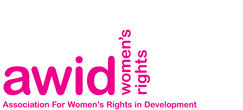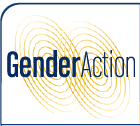|
Haiti
Publications
Towards Food Security and Resilience in Haitian Agriculture: A Call to Action
Gender Action and the Haiti Advocacy Working Group (HAWG)
November 2012
Food insecurity, exacerbated by two recent disastrous storms and a long period of drought, threatens the fragile progress achieved in Haiti since the 2010 earthquake. It is now is a decisive time for the donor community to refocus its agriculture and food security policies and help the Government of Haiti implement programs that mitigate the impact of natural disasters on Haitian agriculture and meet the food security needs of the nearly 2 million Haitian children, women and families who are going hungry in Haiti today. This call to action, compiled by Gender Action and the Haiti Advocacy Working Group, makes policy and program implementation recommendations to both the international donor community and the Haitian government, to begin the process of rebuilding that vital sector to Haiti's reconstruction and development.
PARTNER PUBLICATION:
BEYOND SHOCK. Charting the Landscape of Sexual Violence in Post-Quake Haiti:
Progress, Challenges & Emerging Trends 2010-2012
Anne-christine d'Adesky, PotoFamn+Fi Coalition
November 2012
'Beyond Shock. Charting the Landscape of Sexual violence in Post-Quake Haiti:
Progress, Challenges & Emerging Trends 2010-2012' is a comprehensive report on progress made since Haiti's historic January 2010 earthquake in combating sexual and gender-based violence (SGBV) and providing services to survivors. It highlights groups, individuals, programs, and approaches that are making a difference and captures emergent trends in this landscape.
The report features Gender Action's work advocating for IFI funds to be urgently directed to Haitian women's needs. For example, Gender Action demonstrated that none of the World Bank's initial investments in post-earthquake Haiti addressed the country's growing epidemic of SGBV. In response, the World Bank announced a US $500,000 grant in 2011 which explicitly addresses GBV in Haiti. Read more about Gender Action's work on Haiti.
Haiti's National Housing Policy: Will it Work for Women?
Claire Lauterbach
September 2012
Gender Action's new case study, Haiti's National Housing Policy: Will it Work for Women? demonstrates that the Haitian government's World Bank-supported draft National Housing Policy risks burdening the poor, especially women, with expensive and unobtainable housing by relying on private solutions. The case study concludes with recommendations for strengthening the Policy to ensure that projects are affordable and accessible to all, especially the 1.5 million Haitians that remain displaced, almost three years after the January 2010 earthquake.
This case study is also available in French: La Politique Nationale du Logement: Aidera-t-elle les Haïtiennes?
IFI's and Gender Based Violence Case Study Haiti
Elizabeth Arend
March 2012
To commemorate International Women's Day 2012, Gender Action prepared this IFIs and Gender Based Violence Case Study that analyzes the extent to which World Bank and IDB shelter, sanitation and electricity investments address GBV in Haiti, as these projects have significant implications for Haiti's GBV epidemic. It also highlights an IDB-funded survey of GBV in Haiti, which took place before the earthquake, but we could not find any post-earthquake follow-up. While Gender Action applauds the World Bank's most recent investment to address GBV, our analysis demonstrates that neither the World Bank nor the IDB adequately address GBV within other critical post-earthquake investments. The case study underscores the urgent need for these institutions to fully implement their gender policies and explicitly address GBV across all sectors.
Gender, IFIs, and Food Insecurity Case Study: Haiti
Elizabeth Arend and Lisa Vitale
November 2011
Gender Action's second food insecurity case study examines the degree of gender sensitivity in World Bank and Inter-American Development Bank (IDB) investments in Haitian agriculture and rural development. Rural women, who constitute the majority of Haiti's small-scale and subsistence farmers, face significant gender discrimination in the agriculture sector. They also suffer disproportionately from rising food prices and increasing food insecurity. Our gender analysis shows that World Bank and IDB investments lack a human rights perspective and pay inadequate attention to gender inequalities that could hinder women and girls' ability to participate in and benefit from project activities. The case study also presents recommendations for IFIs, the G20 and civil society to promote women's rights and gender justice in Haiti's IFI agriculture and rural development investments.
Gender, Agriculture and Rural Development Investments in post-earthquake Haiti
Elaine Zuckerman, Elise Young and Lisa Vitale
Fall 2010
Gender, Agriculture and Rural Development Investments in post-earthquake Haiti demonstrates that the vast majority of World Bank and Inter-American Development Bank (IDB) post-earthquake investments in Haiti approved through mid-October 2010 represent lost opportunities to help Haiti's predominantly poor female farmers, prevent gender-based violence, and support gender-inclusive development efforts.
Haiti Gender Shadow Report: Ensuring Haitian Women's Participation and Leadership in All Stages of National Relief and Reconstruction
Edited by Gender Action
Fall 2010
This final Haiti Gender Shadow Report (GSR), jointly prepared by many women's rights activists and published by Gender Action, provides the crucial gender content that is missing from the Haitian government's World Bank-led Post Disaster Needs Assessment (PDNA), the operative blueprint for recovery that Haiti plans to implement.
Taking Action
Letter to World Bank President Jim Kim on the Third Anniversary of the Haitian Earthquake
Three years ago, an earthquake near Port-au-Prince rocked Haiti. Public sector donors, including the IFIs, have committed over US$ 13 billion to the reconstruction and humanitarian efforts. Now is the time to push for accountable aid. In a sign-on letter, Gender Action, Church World Service and 26 partners raise concerns over the World Bank's Haiti policy, calling on President Jim Kim and his staff to respond to Haitians', especially women's, needs and engage civil society proactively towards this goal. Stay tuned for more info on upcoming advocacy events.
Letter to President Obama on IFIs, debt, and gender-based violence in Haiti
Gender Action sent President Obama a letter pleading for the US Administration to pressure the IFIs to cancel Haiti's IFI debt. This debt cripples poor Haiti from spending on health, water, education and other social services. Women and girls are the largest losers. Within a month of sending our letter, the IMF cancelled most of Haiti's outstanding debt.
Within a month of sending our letter, the IMF cancelled most of Haiti's outstanding debt.
Gender and Debt Impacts of IFI Grants and Loans in Post-Earthquake Haiti
This factsheet summarizes findings from Gender Action's analysis of IFI post-earthquake assistance. It demonstrates first that IFI assistance fails to address Haiti's escalating gender-based violence, and second that although IFIs have cancelled most Haiti debt, IFI debt remains that impoverished Haiti cannot afford to repay. This factsheet is part of the Haiti Advocacy Working Group materials presented to Congress described below.
Haiti Advocacy Working Group Materials
The ad hoc Haiti Advocacy Working Group coalition, of which Gender Action is an active member, delivered materials for the July 27, 2010 Congressional Black Congress Hearing, "Focus on Haiti: The Road to Recovery - A Six Month Review." These materials recommend that Congress ensure that U.S. assistance for Haiti promotes optimal local agriculture, shelter, education, health, camp security and other programs.
Read Elaine Zuckerman's blog on Haiti
To Help Haiti, Upend Aid Habits, and Focus on its Women
Elaine Zuckerman, President of Gender Action and the former Inter-American Development Bank Programs
Officer for Haiti, suggests what needs to be done to make sure that aid to Haiti does not repeat the mistakes
of the past and especially targets women.
This blog was originally published in February, 2010 by
 and and

This blog also appeared in the Fall 2010 print version of Oxfam's quarterly publication Gender and Development
|
